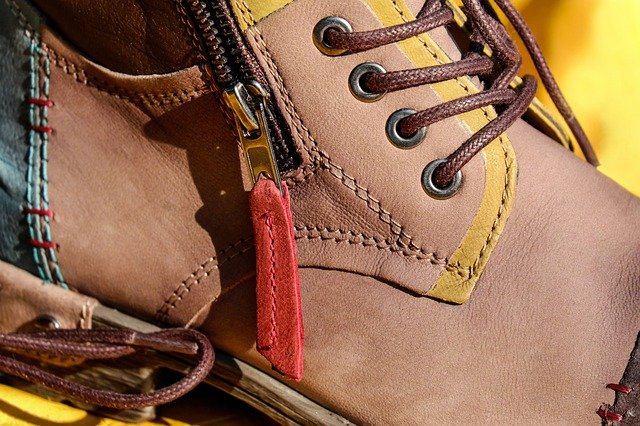How to Find Cheap Tyres Near Me Fitted: Practical Tips for Price, Fitment and Safety
Finding affordable tyres that are properly fitted doesn't have to mean compromising on safety or quality. With a variety of suppliers, mobile services, and competitive pricing options available, drivers can secure reliable tyres at reasonable prices. Understanding what to look for in quotes, how to assess quality, and what the fitting process involves will help you make informed decisions. This guide walks you through practical steps to locate budget-friendly tyres, compare offers, and ensure safe installation.

Searching for affordable tyres that include professional fitting can feel overwhelming, especially with so many suppliers and service options available. However, with the right approach, you can find quality tyres at competitive prices without sacrificing safety or performance. This article provides practical guidance on sourcing budget-friendly tyres, understanding what fitted prices should cover, ensuring quality standards, and navigating the booking and aftercare process.
Where to Search: Local Tyre Centres, Online Retailers and Mobile Fitters
When looking for affordable tyres, your first step is identifying where to search. Local tyre centres remain a popular choice, offering hands-on service and the ability to inspect tyres before purchase. Many independent garages and national chains provide competitive pricing, especially during seasonal promotions. Visiting a local centre allows you to ask questions directly and sometimes negotiate on price or additional services.
Online retailers have transformed the tyre market by offering lower overheads and competitive pricing. Many online platforms partner with local fitting centres, allowing you to purchase tyres online and have them delivered directly to a garage for installation. This model often results in cost savings and convenience. Some retailers also provide customer reviews and detailed specifications, helping you compare options from home.
Mobile tyre fitters bring the service directly to your location, whether at home or work. This option saves time and can be competitively priced, particularly for straightforward fitments. Mobile services are ideal for those with busy schedules or limited access to transport. When comparing options, consider not only the tyre price but also fitting fees, travel charges, and availability.
Comparing Quotes: What a Fitted Price Should Include (Tyre, Fitting, Balancing, Disposal)
Understanding what a fitted price covers is essential to avoid unexpected costs. A comprehensive quote should include the tyre itself, fitting labour, wheel balancing, valve replacement, and disposal of your old tyres. Fitting involves mounting the tyre onto the wheel rim and securing it to your vehicle. Balancing ensures the weight is evenly distributed around the wheel, preventing vibrations and uneven wear.
Valve replacement is a small but important component often included in professional fitting services. Old or damaged valves can lead to slow leaks and reduced tyre pressure. Disposal fees cover the environmentally responsible recycling of your old tyres, which is a legal requirement in many regions.
When comparing quotes, be wary of prices that seem unusually low, as they may exclude essential services. Always request a full breakdown and confirm what is included before committing. Some suppliers charge separately for balancing or disposal, which can significantly increase the final cost. Transparent pricing and clear communication are signs of a reputable provider.
| Service Component | Typical Cost Estimation | Notes |
|---|---|---|
| Budget Tyre (per unit) | £30–£60 | Varies by size and brand |
| Fitting per Tyre | £10–£20 | Includes mounting and securing |
| Wheel Balancing per Tyre | £5–£15 | Essential for smooth driving |
| Valve Replacement per Tyre | £2–£5 | Often included in fitting |
| Disposal per Tyre | £2–£5 | Legally required recycling |
| Total Estimated Cost per Tyre | £49–£105 | Full fitted price |
Prices, rates, or cost estimates mentioned in this article are based on the latest available information but may change over time. Independent research is advised before making financial decisions.
Safety and Quality: Choosing Budget Tyres Without Compromising Performance
Affordable tyres do not have to mean unsafe tyres. Many budget brands meet rigorous safety standards and offer reliable performance for everyday driving. When selecting tyres, check for the EU tyre label, which rates tyres on fuel efficiency, wet grip, and external noise. Wet grip is particularly important, as it indicates braking performance in rainy conditions.
Look for tyres that carry recognized safety certifications and have positive customer reviews. Avoid heavily worn or part-worn tyres unless they have been thoroughly inspected and come with a guarantee. Part-worn tyres can be economical but carry risks if their history is unknown.
Consider your driving habits and typical conditions. If you drive mainly in urban areas with moderate speeds, a budget tyre from a reputable manufacturer will likely meet your needs. For motorway driving or challenging weather, investing slightly more in a mid-range tyre may offer better longevity and safety margins. Always ensure the tyre size and load rating match your vehicle’s specifications, as listed in your owner’s manual or on the driver’s door frame.
Booking and Fitting: Preparing for Installation and What to Expect at the Garage
Once you have selected your tyres and supplier, booking the fitting appointment is straightforward. Many centres and mobile fitters offer online booking systems, allowing you to choose a convenient time. When booking, confirm the total price, what is included, and the estimated duration of the work. Fitting four tyres typically takes between 45 minutes and an hour.
Before your appointment, ensure your vehicle is accessible and that any locking wheel nut keys are available. If using a mobile service, provide a safe, flat surface for the work to be carried out. Arrive on time and be prepared to wait, although some centres offer waiting areas or allow you to drop off your vehicle.
During fitting, technicians will remove the old tyres, mount and balance the new ones, and check tyre pressures. Reputable fitters will also inspect your wheel condition and may advise on alignment if uneven wear is evident. After installation, ask for a receipt detailing the work completed, tyre specifications, and any warranties provided. Check that all tyres are inflated to the correct pressure before driving away.
Aftercare, Warranties and Disposal: Guarantees, Maintenance and Recycling Options
Proper aftercare extends the life of your tyres and ensures continued safety. Regularly check tyre pressures, ideally every two weeks and before long journeys. Incorrect pressure causes uneven wear and increases fuel consumption. Inspect tyres for cuts, bulges, or embedded objects, and monitor tread depth. The legal minimum in many regions is 1.6 millimetres, but replacing tyres at 3 millimetres improves safety, especially in wet conditions.
Many suppliers offer warranties covering manufacturing defects or premature wear. Retain all documentation and understand the terms, as warranties may require proof of regular maintenance. Some retailers provide free puncture repairs or tread-depth checks as part of aftercare packages.
Disposal of old tyres is typically handled by the fitting centre and included in the quoted price. Tyres are recycled into products such as playground surfaces, road materials, and fuel. Ensure your fitter disposes of tyres legally and environmentally responsibly. If you replace tyres yourself, contact local waste facilities for proper disposal options.
Rotating tyres every 8,000 to 10,000 kilometres promotes even wear and maximizes lifespan. Wheel alignment checks are also advisable if you notice pulling to one side or irregular tread wear. Combining good driving habits, regular checks, and professional maintenance will help you get the most value and safety from your budget tyres.




